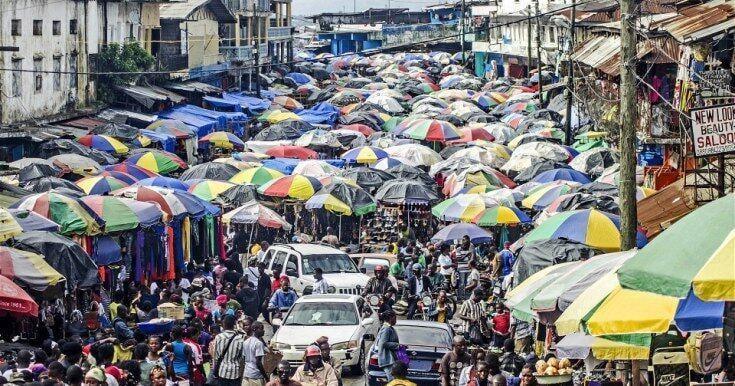Africa-Press – Liberia. President Joseph Nyuma Boakai’s State of the Nation Address painted a picture of cautious optimism, claiming strides in economic growth and fiscal stability. But for most Liberians, these macroeconomic figures mean little without visible improvements in their daily lives. Jobs—sustainable, well-paying jobs—remain the ultimate benchmark by which this administration will be judged. The stark truth is that without investment, there will be no jobs. And at the heart of this equation is the National Investment Commission (NIC), an entity that must now face the harsh reality of its shortcomings.
For decades, the NIC has been entrusted with the critical mandate of positioning Liberia as an attractive destination for foreign direct investment (FDI). Yet its performance, especially in the first year of the Boakai administration, leaves much to be desired. Bureaucratic inertia, a lack of urgency, and an apparent unwillingness to confront entrenched monopolies have undermined the very mission of this institution. The NIC must stop functioning as a passive gatekeeper and start operating as a proactive, results-driven agency that aggressively pursues investment opportunities and ensures their swift implementation. Anything less would be a betrayal of Liberia’s economic potential.
A glaring example of the NIC’s inefficacy lies in the ongoing controversies surrounding Liberia’s railway infrastructure. The idea of an independent, multiuser rail system has been a topic of national discourse for years, with proponents arguing that it could unlock billions of dollars in revenue and transform the mining sector. Yet progress has been repeatedly stalled, not due to technical challenges, but because of deliberate delays by government officials favoring monopolistic arrangements. These actions serve narrow interests at the expense of the broader economy, and the NIC’s silence in the face of these roadblocks is both troubling and unacceptable.
The NIC’s role is not just to attract investors but also to champion their interests against the very forces that hinder progress. Where is the NIC when critical investment proposals are delayed in the labyrinth of government bureaucracy? Where is the NIC when potential investors walk away, frustrated by opaque processes and endless negotiations? If the NIC cannot stand as a bulwark against these obstacles, then it risks becoming irrelevant—a glorified rubber stamp rather than the engine of Liberia’s investment landscape.
President Boakai’s speech rightly identified agriculture, mining, and infrastructure as pillars of economic transformation. Liberia’s fertile land and abundant natural resources make these sectors ripe for investment. Yet, despite these advantages, the country struggles to attract the level of FDI necessary to drive job creation. Why? Because the investment climate remains plagued by inefficiency and a lack of transparency—issues that the NIC has failed to address.
Take agriculture, for instance. Liberia has the potential to become a regional powerhouse in rice production and cassava cultivation, but the sector remains underfunded and underdeveloped. The government’s modest efforts, such as cultivating 4,000 hectares of rice, are commendable but insufficient. The NIC should be leading the charge in attracting agribusiness giants, facilitating public-private partnerships, and ensuring that investment flows into this critical sector. Yet, there is little evidence that the NIC is leveraging Liberia’s agricultural potential to its fullest extent.
Similarly, in the mining sector, Liberia boasts vast reserves of untapped minerals, including lithium, cobalt, and iron ore. These resources could attract billions of dollars in investment and create thousands of jobs. But the NIC’s inability—or unwillingness—to expedite negotiations and finalize agreements with international investors has left these opportunities hanging in the balance. The NIC must abandon its reactive posture and adopt a more assertive approach, pushing through deals that align with Liberia’s long-term economic goals.
Infrastructure remains another area where the NIC’s lack of initiative is evident. Investors are unlikely to commit capital to a country with poor roads, unreliable electricity, and inadequate port facilities. While President Boakai highlighted progress in road construction and rural electrification, these efforts must be scaled up dramatically. The NIC should be spearheading efforts to attract investment in infrastructure, ensuring that Liberia’s foundational challenges are addressed as a matter of urgency.
The NIC must also confront the culture of corruption and favoritism that pervades Liberia’s investment space. Investors need certainty, transparency, and a level playing field. The perception that certain government officials prioritize personal gain over national development is a cancer that the NIC must excise. This requires more than rhetoric; it demands concrete actions to hold officials accountable and to streamline investment processes. The NIC must become a champion of reform, setting the tone for how Liberia engages with the global investment community.
Moreover, the NIC must embrace a mindset of accountability. It is not enough to tout investment targets and issue press releases about pending agreements. The Liberian people deserve to know what the NIC has achieved, what challenges it faces, and how it plans to overcome them. The commission should provide regular updates on its activities, including detailed reports on the status of key investment projects and their expected impact on job creation. Without this level of transparency, the NIC risks losing the trust of both investors and the public.
President Boakai has repeatedly emphasized the importance of creating an enabling environment for investment. This is a noble goal, but it requires the NIC to rise to the occasion. The commission must evolve from a passive bystander into a dynamic, proactive institution that aggressively pursues investment opportunities and delivers results. This means cutting red tape, expediting negotiations, and ensuring that Liberia remains competitive in the global market.
The stakes could not be higher. Liberia’s unemployment crisis is not just an economic challenge; it is a social and political time bomb. If the NIC continues to underperform, the consequences will be dire: more Liberians trapped in poverty, more young people left without opportunities, and more disillusionment with the government’s ability to deliver on its promises. The NIC must recognize that its mandate is not just about attracting investment but about securing Liberia’s future.
It is that simple: no investment, no jobs. The NIC has the power to change this narrative, but only if it confronts its shortcomings with honesty and urgency. The Liberian people cannot afford to wait, and neither can the Boakai administration. It is time for the NIC to deliver — or to make way for those who will.
Source: Liberianobserver
For More News And Analysis About Liberia Follow Africa-Press






